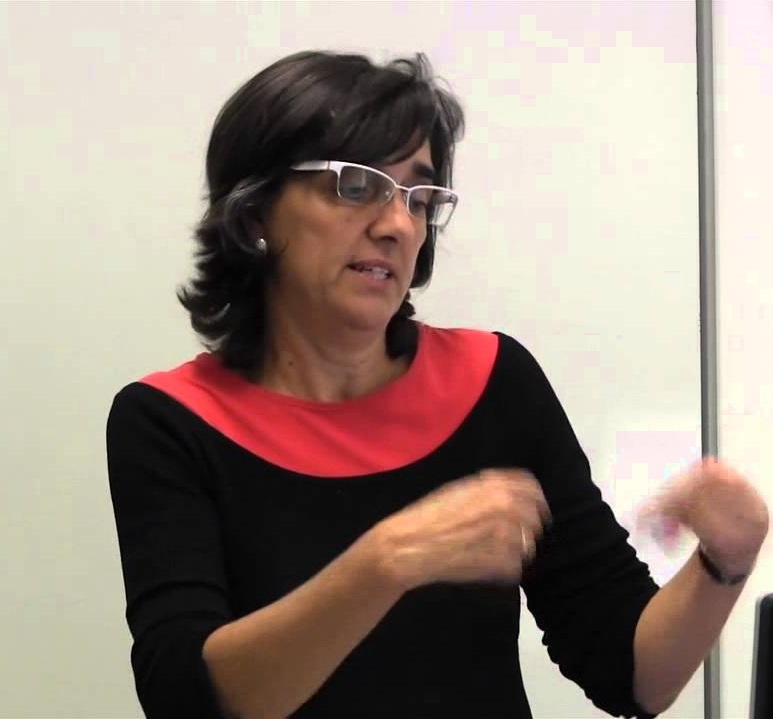" The project has reached its objectives and has been approved by the European Commission, although there are still many papers being prepared"

An interview with Carme Borrell, Principal Investigator
1) Could you summarize in your opinion- the most relevant results that SOPHIE has produced?
SOPHIE has been a very big project with many interesting results. Our group has been doing research, for several years, on the description and evolution of social inequalities in health, and SOPHIE, advancing on our previous projects, has evaluated several policies to reduce health inequalities using innovative methods. Therefore, the challenges were important and not easy to overcome. We are happy that the project has reached its objectives and has been approved by the European Commission, although there are still many papers being prepared.
Just as an example, I think that the advances done on the field of housing and health are very important for our group. Very few Spanish groups have done research on this issue. Through the recent stark economic recession, many families in Spain lost their house. The SOPHIE project has shown how suffering a process of foreclosure or eviction, or living in inadequate housing has very negative health outcomes. However, policies directed to solve the situation have health benefits for these people. Also we have shown how a program of housing retrofit undertaken in Barcelona for several decades, has diminished mortality due to cold weather, especially among women.
Finally, I am very proud of the communication made through SOPHIE, trying to reach not only the scientific audience, but also other stakeholders, policymakers and general population. The use of different tools to communicate (web, newsletter, videos, slideshare, social media, press, infographics, conferences, etc.) has been very useful and innovative for a research project.
2) Were there some of the research results unexpected or surprising?
A very important result for the project has been to show that, once disentangled from recession effects, austerity measures that have been set up by several European governments increased some causes of mortality. The Sophie project has been undertaken during the years when such measures have been predominant in Europe, therefore, for us it was very important to show these results.
Also, the results showing the benefits of urban renewal plans (integrating public space reforms and social programs) on health and health equity are very important. These results will be useful for example for the new government of the city of Barcelona, which is committed to allocate more resources to the neighbourhoods of the city with more socioeconomic deprivation.
3) Have you observed any pattern through the different workpackages regarding the crisis-recession context?
Several authors have stated that the economic recession has not damaged health outcomes. Through the Sophie project we can say that this affirmation is not correct. We have reviewed the scientific literature published in Greece, Spain and Iceland evaluating the impact of the economic recession on health, and we have shown that there are many results published showing that the economic recession harms several health outcomes as for example mental health, including suicide, infectious disease or infant health.
Moreover, some of our original research has shown that poor mental health increases for adult men in Spain in 2011, compared with 2006 (previous to the recession). This increase is explained by the increase of unemployment. And socioeconomic inequalities in poor mental health also increased in 2011. However, not all health outcomes worsen with the recession, for example some health related behaviours improved.
Therefore, when we speak on the impact on health outcomes of economic recession, I would say that there is not a unique answer: the impacts depend on the health outcome and on the group of population studied.
4) In case you had a meeting with the European Commission members which policy recommendations would you suggest to them?
We need to promote "health in all policies" strategies, taking into account that the majority of health determinants are outside the health sector. Moreover, when programmes are implemented it is necessary to have objectives towards the different social groups based on the axes of inequality as for example social classes, gender, race or deprived areas. If these different groups are not targeted, probably the programmes will not reach the whole population.
Another important aspect is how the governments are behaving during the economic recession. Policies based on austerity measures and cuts of the public services can damage the health of the population and increase socioeconomic inequalities in health.
5) Finally, can you explain your general thoughts as a PI of such a big project like SOPHIE?
From my point of view, to lead a project like this it is very important to be confident with the different European partners. In general, when you work with different groups, there exists always the danger that someone can not follow the calendar of the project, not reaching the objectives. In the case of Sophie, we had the important advantage of knowing the majority of the researchers, which facilitated the good performance of the project. Now, that the project is finished I have to congratulate all of them for the hard work done.
Another very important aspect to take into account is the role of the project manager; Davide Malmusi has been a key person for the project, not only managing the project, but also participating in several scientific parts of it. I would like to thank Davide for all the work he has done.
